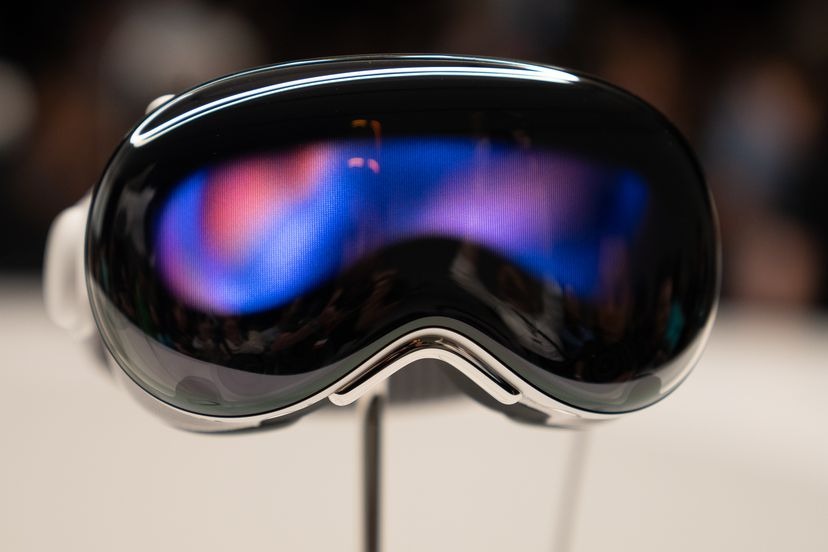Apple recently rocked the tech world by unveiling their first homegrown AR/VR headset, Vision Pro. Packed with advanced capabilities like seamless blended reality transitions, precise room-scale tracking, and lifelike avatars, this premium device aims to set a new standard.
But with a staggering $2,999 price tag, skeptics question its mainstream appeal and long term influence. Will Vision Pro transform our digital lives or remain an ultra-high-end novelty?
Vision Pro Ushers In Cutting-Edge Features
As expected from Apple, Vision Pro introduces multiple revolutionary features that could fundamentally shift user expectations.
Standouts include:
- Advanced eye tracking enabling simulated eye contact
- Spatial audio with headlocked sounds
- Powerful new processors and ultrathin micro-OLED displays
- Hand/finger tracking for natural interaction
These capabilities, derived from years of Apple R&D, facilitate more immersive and intuitive AR/VR experiences unlike any currently available.
…But at a Steep Cost
The trailblazing technology infused in Vision Pro predictably carries a towering price tag – $2,999 to be exact. This far exceeds most competing headsets:
- Meta Quest Pro – $1,500
- HTC Vive XR Elite – $1,099
- Sony PlayStation VR2 – $599
For comparison, Vision Pro costs more than most consumers spend on their actual computers or phones. Such elite pricing keeps cutting edge VR out of mainstream reach.
The Vision for High-End VR Experiences
Despite its exclusivity for now, Vision Pro represents Apple’s grand vision for unlocking VR’s ultimate potential. The obvious plays involve gaming, video/communication, and content creation.
Apple showcased interactive sports viewing, lifelike FaceTime calls, 3D design previews, and AAA gaming sessions – none possible on today’s headsets. For those needing high-fidelity blending of real and digital worlds, Vision Pro delivers revolutionary capabilities.
Pushing the Industry Forward
Regardless of its niche appeal presently, Vision Pro will undoubtedly push the broader VR/AR industry forward. Apple’s innovation raises the ceiling for what these technologies can achieve. Competitors will race to shrink these advances into more affordable form factors.
We saw this play out with the iPhone, which completely redefined mobile phone capabilities. And like the original iPhone, Vision Pro provides a glimpse into the eventual convergence of AR, VR and our physical reality several generations down the road.
The Last Word
At its current ultra-premium pricing, Vision Pro stops short of being dubbed a true game changer. But much like early iPhone models, it offers a technological revolution restricted only by initial production barriers that will erode over time.
Apple may once again pave the future of personal computing with Vision Pro, shaping our expectations while competitors scramble to catch up. Only then will high fidelity VR/AR shift into the mainstream.
[Readers: Do you think Apple’s Vision Pro headset pushes VR/AR capabilities to the next level despite its niche appeal today? Or is the high pricing too limiting for real change?]









Add Comment